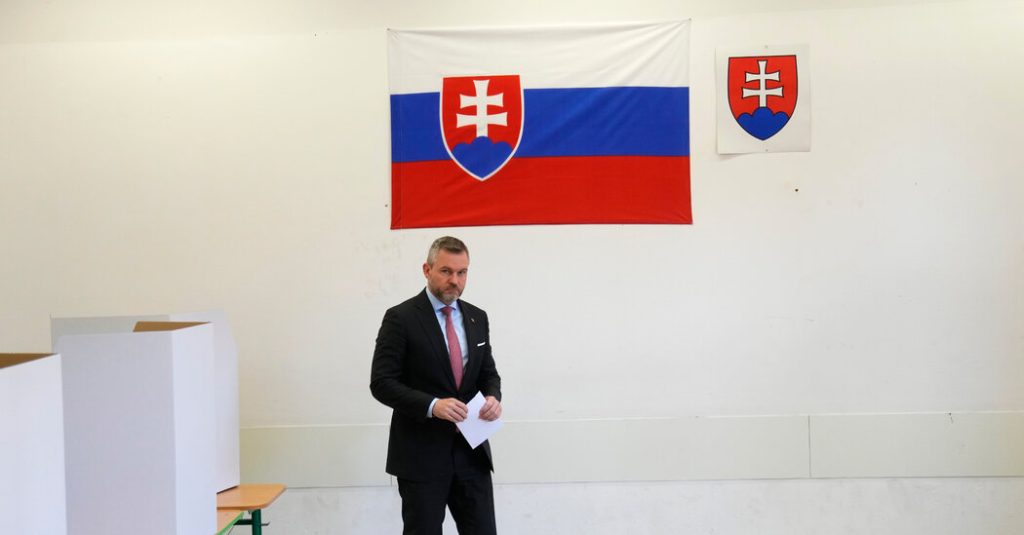Voters in Slovakia recently elected Peter Pellegrini, an ally of populist Prime Minister Robert Fico, as their new president. Despite the limited powers of the presidency in Slovakia, this election was closely watched as a test of strength between political camps with differing views on Russia. Pellegrini, who opposes providing military and financial aid to Ukraine, defeated Ivan Korcok, a strong supporter of Ukraine and critic of Fico. This victory for Pellegrini is seen as a win for Russia-friendly political forces in Central Europe.
In the lead-up to the election, Pellegrini utilized tactics similar to those used by Hungarian Prime Minister Viktor Orban during the 2022 election in Hungary. He falsely claimed that Korcok, his opponent, was a warmonger intent on sending Slovak troops to fight in Ukraine. Despite Korcok denying these claims, he struggled to combat the disinformation spread by pro-Russia websites and social media accounts. Pellegrini’s victory has allowed Fico to pursue his agenda without interference from the presidency, marking a shift from the tenure of the outgoing pro-Western liberal president, Zuzana Caputova.
Caputova had used her limited powers to push back against Fico’s pro-Russia actions and attempts to limit the judiciary’s ability to prosecute corruption. With Pellegrini now in office, there is a possibility that Slovakia may adopt a more confrontational approach similar to Hungary within the European Union. Fico and Orban have advocated for “peace” in Ukraine through swift negotiations, arguing that the war will continue indefinitely otherwise. However, Korcok, a career diplomat, believes that providing military and financial support to Ukraine is essential for ending the conflict in a lasting manner.
Fico, a seasoned politician who previously resigned in 2018 amidst corruption allegations, has followed Orban in efforts to undermine the judiciary and paint supporters of Ukraine as disloyal to the United States. Despite facing initial challenges, Fico returned to power after the general election in September, revitalizing his political career. The election of Pellegrini signals a potential shift towards a more Russia-friendly stance in Slovakia, aligning with Fico and Orban’s views on the conflict in Ukraine.
Overall, Pellegrini’s victory in the Slovak presidential election reflects a strengthening of Russia-friendly political forces in Central Europe. With his anti-Ukraine stance and ties to populist Prime Minister Fico, Pellegrini’s win may mark a departure from the pro-Western policies of the outgoing president. The outcome of this election has implications for Slovakia’s stance on Russia and Ukraine, as well as its relations within the European Union.


